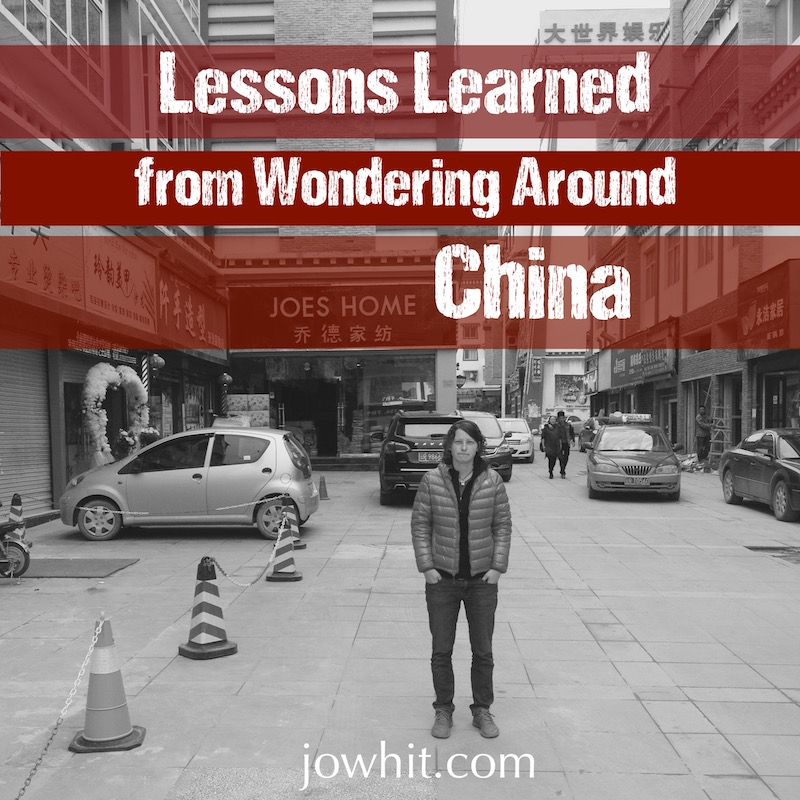
At the beginning of the China travelogue I mentioned 4 reasons for us staying in country for the summer holiday. So you might be wondering if those reasons held up. At least, I sure was wondering. So, in retrospect:
Traveling domestically is cheaper
I was mostly wrong here - mostly because I failed to specify "cheaper than...what?" Cheaper than Japan or Germany? Sure. Cheaper than SE Asia, upon which my budget was based? Nope. In the end, what we actually spent was 25% more than my prediction which was mostly based off of travel in Southeast Asia and food prices in our home city. Had I compared it to traveling in a more expensive region I probably would have been less wrong. Most of the discrepancy came from food, hostels, taxis, buses, and entrance fees...K, [cough] so everything. Except for the plane tickets; we did save some yuan by not flying over boarders. Take away: be more pessimistic while budgeting. **Word to present day travelers - China is getting more expensive by the day.
FOMO! This will probably be our only chance to travel in China
This reason holds up fine. It'd have been a shame to return to the US and not have seen anything outside the concrete buildings of Jilin.
We should travel in China in order to get a broader and more accurate idea of what China is actually like
After all, staying in a single city, surrounded primarily by one demographic (college students), and one boring landscape doesn’t give a fair picture. Despite how excited and grateful I was to be in our fair city – to be honest - our fair city reminded me of an abandoned theme park. I was sure this couldn't be it. After just a few days, this reason began to hold up too. I do think that seeing other provinces and people groups gave us a slightly broader picture of China – at least a more keen awareness of there being a bigger picture. Yunnan especially had refreshing landscapes and different groups of people living different lifestyles, though, having poor Mandarin, we weren't able to have long conversations. That is a regret.
Domestic travel would force us into using the 15.5 words of Chinese that we knew
Absolutely true. I used every scrap of Mandarin I knew and got rather practiced at asking for directions, if people spoke English, and admitting the obvious - that my Chinese stunk - which folks seemed to enjoy hearing. No matter the person's answer, a belabored conversation heavily supplemented by hand gestures and sprinkled with nervous chuckles (on my part) was sure to follow.
Besides the above, James and I picked up a few lessons from the usual teacher, Experience.
1. China isn’t only massive cities and smog. The east coast is massive cities and smog. Step westward and you’ll encounter plenty of country folk who still live quiet, more traditional lives in the peace and simplicity of a beautiful landscape – and there are some absolutely stunning landscapes.
2. Unfortunately, the stereotypes about Chinese tourists were not dismissed as “merely stereotypes.” Most of the other tourists we encountered were loud & pushy. As in, literally pushing me. I can’t tell you how many times someone walked right into me or whacked my camera without seeming to notice I was there – which is odd since Americans are usually labeled as being the loud ones.
At every scenic area we went to it seemed like we were trying to escape the noise that the other tourists were making which was probably due to their traveling in large packs while we two were seeking solitude. They obviously just had a different idea about what a good time was. Occasionally, we’d pass by another Westerner (usually European) and see the same harried look reflected on his or her face before exchanging a sympathetic glance.
3. Traveling with locals doesn’t necessarily make things easier, though I’m certain that the specific individual makes a big difference – no matter where they’re from.
5. Schedule in some cushion time just in case someone gets sick or there’s a need to change the schedule – probably because someone got sick.
Seriously, eat some raw garlic with that dish, take probiotics, and you’ll be fine. Just don’t bite into raw garlic alone because it’ll burn your face off and face is very important in China.
6. Don’t get upset about having to change the itinerary…because you didn’t eat raw garlic and got sick, for example, or because you were too slow to catch the bus. Just find a way to enjoy the place where you’re stuck.
7. Even if you have a travel buddy, it’s ok and probably more healthy to wander in different directions now and again even if it’s only for an afternoon.
10. Do not bring snacks! A few emergency rations are acceptable but seriously: eat the local food! It’s delicious, you’ll love it and if you don’t, don’t worry, It just means there’s something wrong with you.
11. But was it dangerous? No, not really. We never felt creeped out or in danger, though we also don’t go looking for trouble. I saw more sketchy things while living normal life in Jilin than while traveling. So go ahead, “have a try” at travel, as my students say.